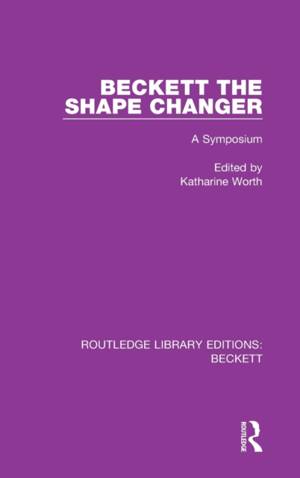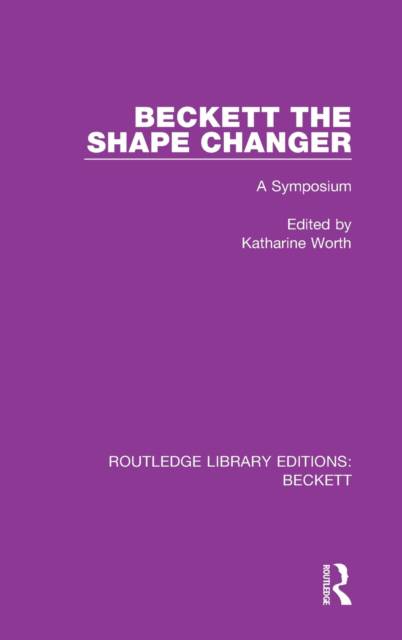
- Afhalen na 1 uur in een winkel met voorraad
- Gratis thuislevering in België vanaf € 30
- Ruim aanbod met 7 miljoen producten
- Afhalen na 1 uur in een winkel met voorraad
- Gratis thuislevering in België vanaf € 30
- Ruim aanbod met 7 miljoen producten
Beckett the Shape Changer
A Symposium
Omschrijving
The essays in this book, first published in 1975, suggest how best to approach Beckett, how to read him, how to get closer to the concrete experience offered by this most concrete of writers. It aims to bring out the full diversity of Beckett's art as dramatist and story-teller. His astonishing flexibility and inventiveness is stressed throughout, either in studies of single novels, or from the whole range of the fiction and stage drama, or from the experiments in other media: the solitary film, the radio plays. Beckett's bilingualism, one of the strangest aspects of his Proteanism, is examined through a comparison of the French and English texts of some of his stage plays. The emphasis of the essays is literary rather than philosophical: they explore narrative and dramatic processes, the strange partial transitions between them, the fine relations of form and feeling which Beckett aims at through whatever medium he is using, and his humaneness, expressed through the many nuances of his humour. The shorter fiction and the later writings also receive close attention.
Specificaties
Betrokkenen
- Uitgeverij:
Inhoud
- Aantal bladzijden:
- 240
- Taal:
- Engels
- Reeks:
- Reeksnummer:
- nr. 3
Eigenschappen
- Productcode (EAN):
- 9780367747695
- Verschijningsdatum:
- 19/05/2021
- Uitvoering:
- Hardcover
- Formaat:
- Genaaid
- Afmetingen:
- 156 mm x 234 mm
- Gewicht:
- 512 g

Alleen bij Standaard Boekhandel
Beoordelingen
We publiceren alleen reviews die voldoen aan de voorwaarden voor reviews. Bekijk onze voorwaarden voor reviews.










